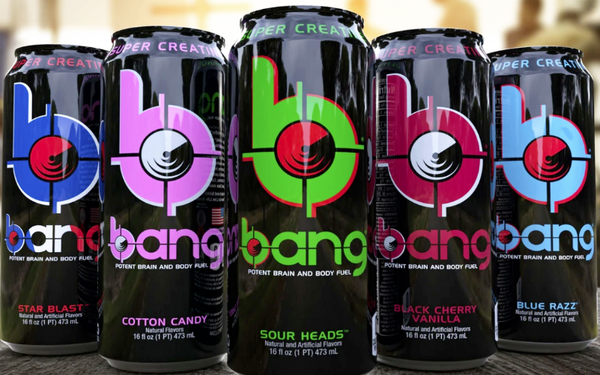
Social distancing is a major inconvenience for energy drink brands.
That’s because traffic
at convenience stores and gas stations—major distribution channels for energy drinks—has declined significantly as people spend more time at home.
Against this backdrop, PepsiCo
revealed yesterday that in addition to completing its $3.85 billion acquisition of Rockstar Energy Beverages, it’s now the exclusive distributor of Rockstar competitor Bang Energy in the United
States.
Embracing Rockstar and Bang gives PepsiCo a growing family of well-known energy drinks. It’s the latest salvo in a war that Coca-Cola entered in January with Coke Energy, which
complemented its existing stake in C-store stalwart Monster Energy.
advertisement
advertisement
“Bang is perceived to be more functional than other energy drinks, and that could be a profitable direction for
PepsiCo, as brand decisions are being made more frequently on the basis of perceived health value,” Tom Vierhile, vice president of strategic insights for global data provider Innova Market
Insights, tells Marketing Daily.
“It’s a no-brainer to blow out the distribution doors on the product, and that’s undoubtedly what they plan on doing,” he
adds.
In discussing PepsiCo’s first quarter earnings, chairman and CEO Ramon Laguarta said that all beverages—and in particular, Mountain Dew—were negatively impacted by
consumers shifting away “from immediate-consumption channels such as convenience and gas and food service.”
It’s not just brand marketers that are feeling the C-store crunch,
but store operators themselves.
Recognizing the need to pivot, 7-Eleven today announced that it will start using delivery platforms Postmates and DoorDash—along with Favor Delivery in
Texas—for on-demand delivery orders. With 11,800 U.S. stores, 7-Eleven is the country’s largest convenience-store chain.
“How convenience is defined is completely different
today than it was just a month ago," 7-Eleven COO Chris Tanco said in a statement. "Our customers are now looking for more convenient shopping solutions at home.”
A new study from Skupos
Insights—which aggregates billions of transactions from more than 13,000 independent convenience stores—shows that Red Bull and Monster still hold commanding leads in those outlets.
Combined, their share of dollar volume was nearly 80% at the beginning of March.
Nonetheless, Coke Energy was able to gain distribution in about 50% of independent C-stores in the Northeast in
just over three months by offering a lower initial price, according to Skupos data.
“The strategy helped Coke Energy catch up with one main competitor (Full Throttle) in terms of market
share, and establish a model for catching other leading brands like Monster and Red Bull, who maintain a sizable national advantage,” states the Skupos study.